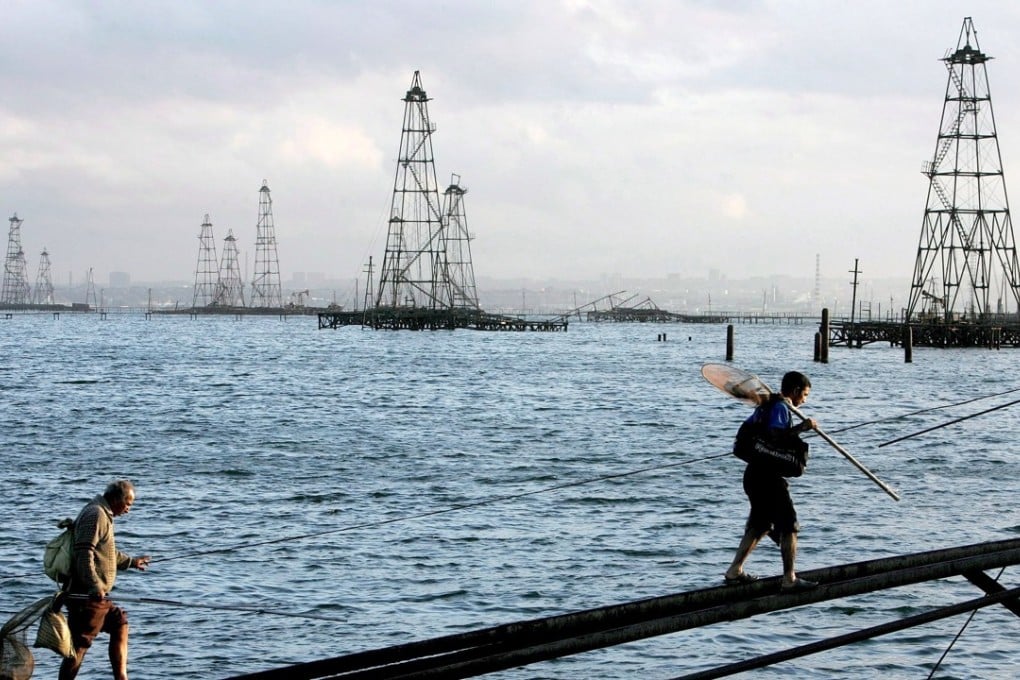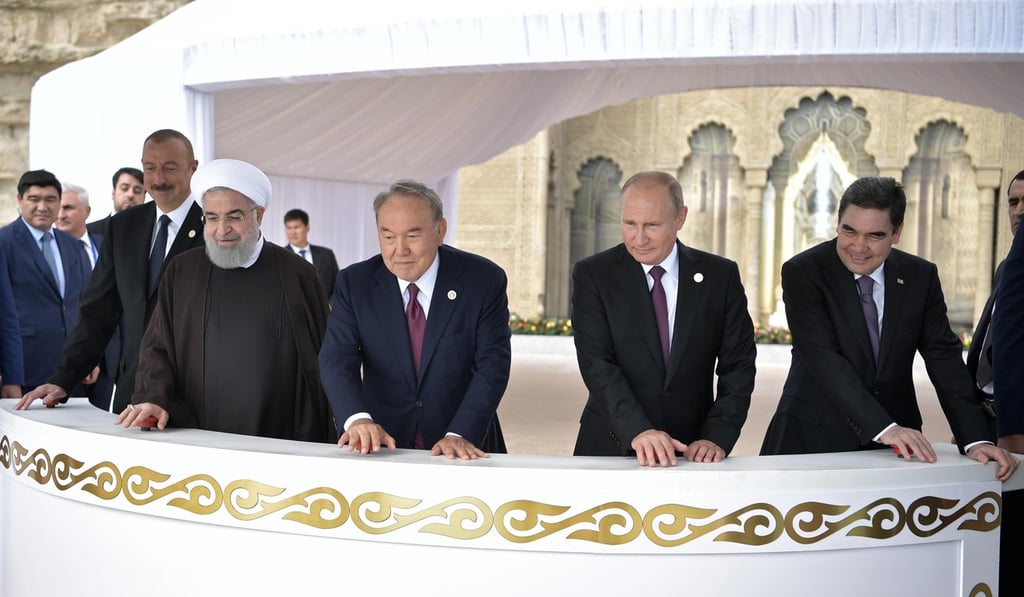Russia and Iran among five coastal nations forging landmark Caspian Sea deal
Five countries with shores on the world’s largest inland body of water sign legal convention to share its resources

Vladimir Putin and Hassan Rowhani met on Sunday after a dramatic few days in which both were threatened with punishing economic sanctions by the US.
But they were not meeting to agree a united response to this act of “economic warfare”, as Russia describes it. The Russian and Iranian presidents were in the small Kazakh coastal city of Aktau to sign a legal convention on the Caspian Sea.

After more than two decades of fraught diplomatic efforts, the five littoral Caspian nations – Russia, Iran, Kazakhstan, Azerbaijan and Turkmenistan – agreed a legal framework for sharing the world’s largest inland body of water, which bridges Asia and Europe and is packed with oil, gas and sturgeon. Diplomats describe the document as a regional constitution.
“Our summit is exceptional if not truly epoch-making,” Putin told a room of presidents and foreign ministers.
Rowhani was more circumspect: “We have taken a very important step but we should recognise there are more important issues that need to be addressed.”